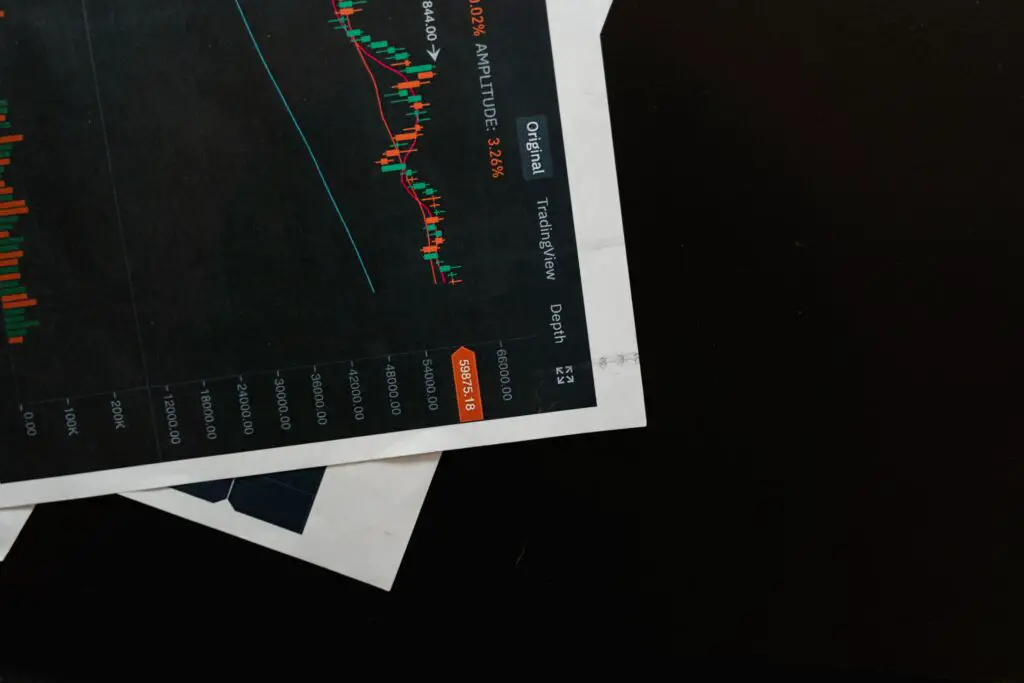Penny stocks are often the target of manipulation. The consequences can be disastrous for the unwary investor who gets caught up in the hype. But do you know how penny stocks are manipulated?
In this article, we will explore what penny stock manipulation is, why it happens, and the consequences of engaging in this type of behavior.
We will also look at how to tell if a stock is being manipulated and provide some tips on how to protect yourself from being a victim of this type of fraud.
What is penny stock manipulation?
Penny stock manipulation is a process whereby a small group of investors works together to artificially inflate the price of a penny stock. This is done to cash in on the resulting increase in value when the stock is sold. This is one of the reasons why penny stocks are so risky because they are targets for this type of illegal activity.
Why penny stocks are easily manipulated
Penny stocks are easily manipulated because they have low liquidity, which means there are not many buyers and sellers in the market. This makes it easier for a small group of investors to move the price of the stock. We will explain this concept in more detail later on in this article.
Can you manipulate a penny stock?
It is possible to manipulate penny stocks. The most common method is called 'pump and dump'. This involves a group of investors buying up a large number of shares in a penny stock. They will then artificially inflate the price of the stock by spreading false or misleading information about the company.
When the stock price reaches a certain level, the group sells its shares for a profit. These investors will hold many shares, so their sales can cause the stock price to crash, leaving unsuspecting investors with worthless shares.
This leaves other investors who bought the stock at the inflated price holding the losses. Additionally, pump and dump schemes often involve microcap stocks. This is because they are more vulnerable to manipulation due to their low liquidity and lack of publicly available information.
Liquidity is the number of shares that are traded in a given period. Low liquidity helps with manipulation because it takes less buying to move the price. These types of stocks also do not have as much attention as larger companies, so it can be easier to get away with fraud.
A lack of information about a company makes it more difficult for victims to do their own research to find out if the stock is a good investment. Because of this many investors will depend on influencers to give them investment advice.
Pump and dump schemes are often one step ahead and will use these influencers to spread their false information. While pump and dump schemes can be conducted in any type of security, they are most commonly associated with penny stocks.
Penny stocks are generally defined as shares that trade for less than $5 per share. The reason why manipulators will target penny stocks is that they are easier to move than larger stocks, and the potential profits are much greater.
The lower share price makes it easier for people to buy a lot of shares. This will help the price go up. Pump and dump schemes are illegal and can be prosecuted by the SEC.
If you are convicted of participating in a pump and dump scheme, you could face up to five years in prison and be fined up to $250,000.
Why pump and dump is illegal
This form of manipulation is illegal in most jurisdictions because it violates insider trading laws and other rules designed to protect investors. It is also deemed illegal because it is unethical to take advantage of other investors in this way.
A stock market is a place where companies can raise money to finance their businesses. When a group or individual decides to artificially inflate the price of a company's stock, they are doing so to cash in on the hype.
This does not support the purpose of a stock market and is parasitic to capitalistic markets.
Consequences of manipulating penny stocks
We've already mentioned the legal consequences of manipulating penny stocks, but there are other potential consequences as well. Five years and $250,000 in fines may not be worth it for some people, but others may still take the risk.
However, the SEC can also bring civil charges against those who have participated in pump and dump schemes. This can result in a ban from trading securities, and the SEC can also seek to recoup any ill-gotten gains.
Second, you could also be subject to civil lawsuits from investors who lost money because of the manipulation. These lawsuits can be brought by individual investors or by a class action.
That means that even if the SEC doesn't come after you, you could still end up having to pay out a lot of money. The reputational damage caused by being convicted of stock manipulation can also be significant.
A criminal record can make it difficult to get a job, and the taint of being associated with securities fraud can follow you for the rest of your life. Finally, you could also be subject to disciplinary action from your broker-dealer or from the Financial Industry Regulatory Authority (FINRA).
This could include a fine, suspension, or even expulsion from the industry. All in all, manipulating penny stocks is a risky proposition that is not worth the potential rewards.
The legal and financial consequences can be significant, and the reputational damage can ruin many future opportunities. If you're thinking about participating in a pump and dump or any other form of stock market manipulation, think about the consequences first.
How to tell if stock is being manipulated?

The best way to find out if a stock is being manipulated is to look at the trading volume. If there is an unusually high amount of trading activity, it could be a sign that someone is trying to manipulate the price.
For example, if there is a small company with only a few million shares outstanding, and suddenly there is a day where tens of millions of shares are traded, the price is likely being manipulated.
This is especially true if there isn't any news that would explain the increase in trading activity. Another way to tell if a stock is being manipulated is to look at the bid-ask spread. The bid-ask spread is the difference between the highest price that someone is willing to pay for a stock (the “bid”) and the lowest price that someone is willing to sell it for (the “ask”).
A wide bid-ask spread can be a sign that there are not many buyers or sellers interested in trading the stock. However, if the bid-ask spread suddenly becomes very narrow, it could be a sign that someone is trying to manipulate the price by buying or selling a large number of shares all at once.
Another way to tell if a stock is being manipulated is to look at the price chart. If there are sudden, sharp movements up or down, it could be a sign that someone is trying to artificially move the price.
If you see influencers start talking about a particular stock out of the blue, that's also a red flag. Oftentimes, people will try to pump up a stock by artificially creating a buzz on social media or in chat rooms.
Some YouTubers will also participate. If all of a sudden micro-influencers and people with no investment experience are talking about a stock, be very careful. Finally, if you see a stock that is trading at a price that seems too good to be true, it could be a sign of manipulation.
For example, if a company seems below average but it's trading at a high share price, it could be a sign that someone is trying to artificially inflate the price. If you suspect that a stock is being manipulated, it's important to do your own research and not blindly follow what others are saying.
There are a lot of scams in the penny stock world, and you don't want to get caught up in one.
Conclusion
Manipulation can be defined as a deliberate attempt to interfere with the free and fair operation of the market. When it comes to penny stocks, there are a few well-known methods for manipulation.
This article explained how pump and dump schemes work, as well as how to spot them. While you now know that manipulation is rife in the penny stock market, there are still opportunities for you to still find yourself in the middle of manipulation.
Taking advantage of a poor investor's psychology is a powerful way that manipulators use to their advantage. Be sure to do your own research and be mindful of the tone of voice used by promoters. By being aware of the methods used to manipulate penny stocks, you can make better-informed investment decisions.

